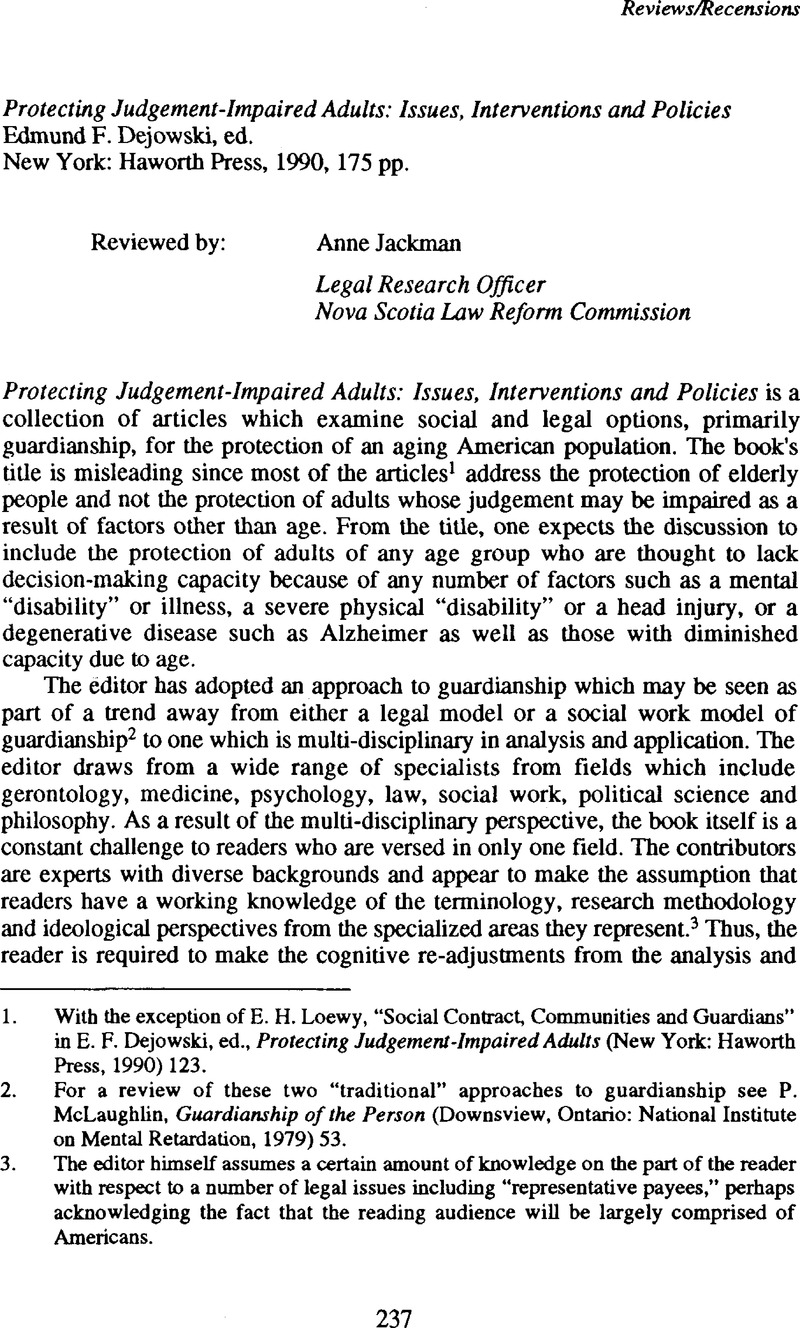No CrossRef data available.
Article contents
Protecting Judgement-Impaired Adults: Issues, Interventions and Policies, Edmund F. Dejowski, ed. New York: Haworth Press, 1990, 175 pp.
Published online by Cambridge University Press: 18 July 2014
Abstract

- Type
- Reviews/Recensions
- Information
- Canadian Journal of Law and Society / La Revue Canadienne Droit et Société , Volume 9 , Issue 2 , Fall/automne 1994 , pp. 237 - 240
- Copyright
- Copyright © Canadian Law and Society Association 1994
References
1. With the exception of Loewy, E. H., “Social Contract, Communities and Guardians” in Dejowski, E. F., ed., Protecting Judgement-Impaired Adults (New York: Haworth Press, 1990) 123Google Scholar.
2. For a review of these two “traditional” approaches to guardianship see McLaughlin, P., Guardianship of the Person (Downsview, Ontario: National Institute on Mental Retardation, 1979) 53Google Scholar.
3. The editor himself assumes a certain amount of knowledge on the part of the reader with respect to a number of legal issues including “representative payees,” perhaps acknowledging the fact that the reading audience will be largely comprised of Americans.
4. David Hightower et al., “Elderly Nursing Home Residents' Need for Public Guardianship Services in Tennessee” in Dejowski, ed., supra note 1, 105.
5. See Loewy, supra note 1.
6. L. Hull, G. E. Holmes & R. H. Karst, “Managing Guardianship of the Elderly: Protection and Advocacy as Public Policy” in Dejowski, ed., ibid. 145 at 151, referring to Smith, L. F., “Representing the Elderly Client and Addressing the Question of Competence” (1988) 14 Journal of Contemporary Law 61Google Scholar. Another contributor, however, suggests that the intelligence of elderly people may be compromised: see M. B. Knapp, “Evaluating Decision-Making Capacity in the Elderly: A Review of Recent Literature” in Dejowski, ed., ibid. 15 at 17.
7. L. A. Frolik, “Elder Abuse and Guardians of Elderly Incompetents” in Dejowski, ed., ibid. 31 at 34.


